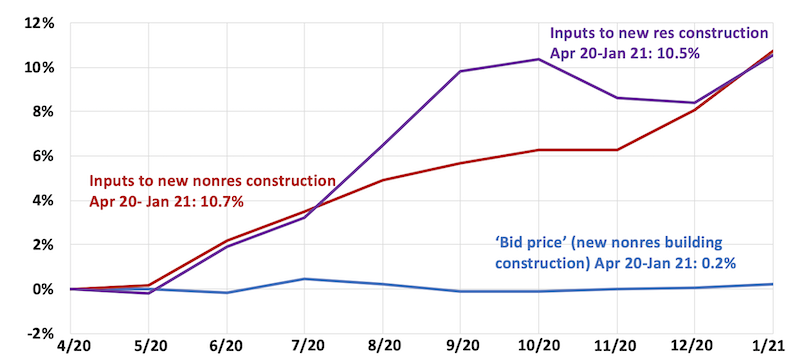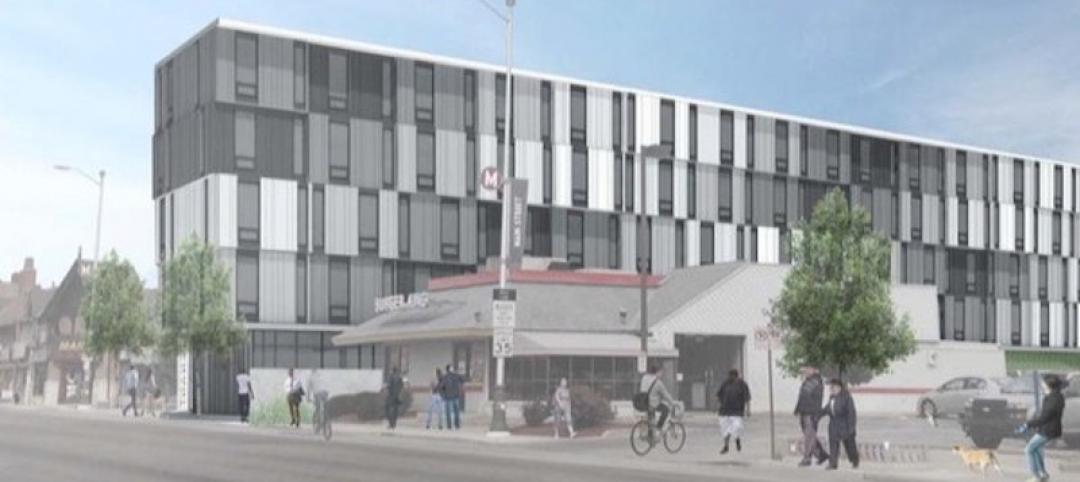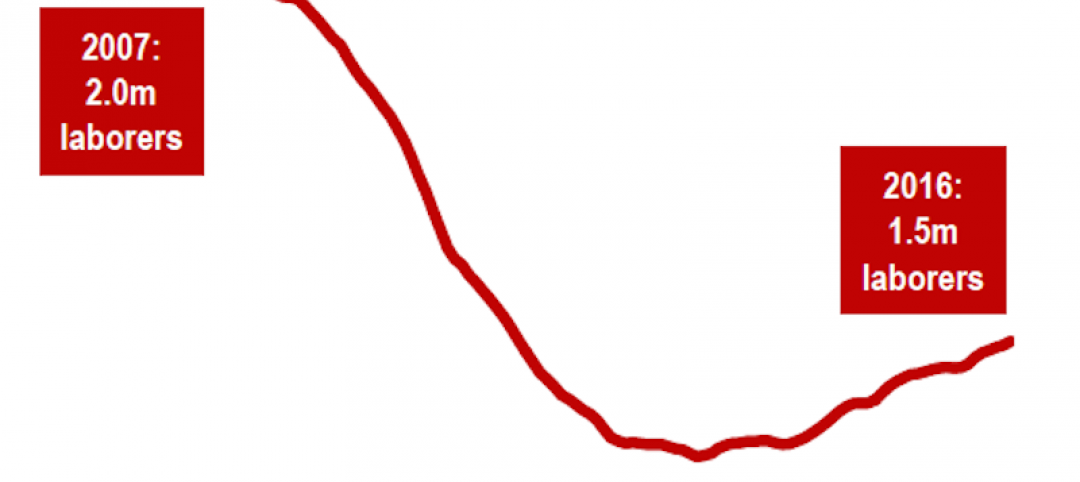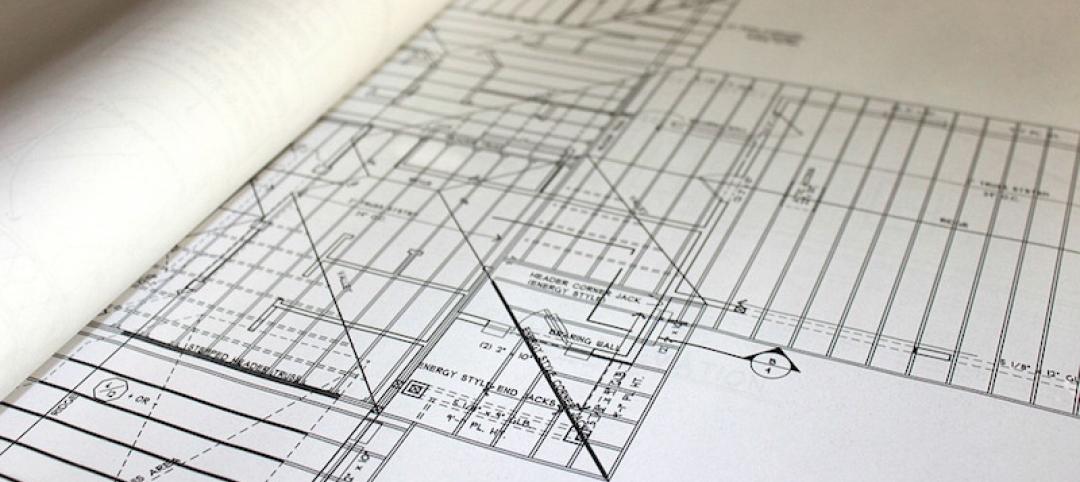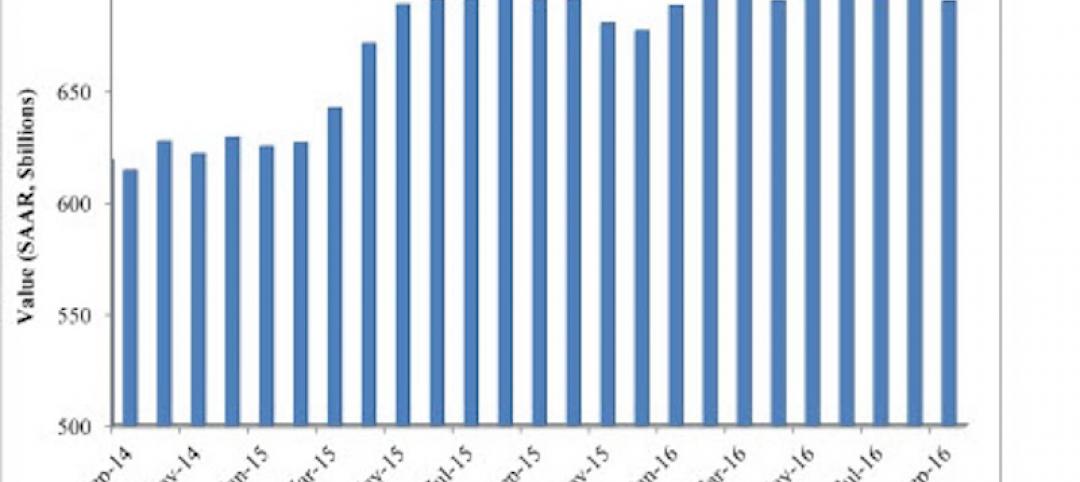Price increases—some to record-setting levels—and long delivery delays are causing hardships for construction firms that are also experiencing challenges in completing projects with crews limited by illness or new work site procedures resulting from the pandemic, according to an analysis by the Associated General Contractors of America of government data released today. Association officials urged the Biden administration to review and rescind a range of trade tariffs in place, including for Canadian lumber, that are contributing to the price increases.
“The extreme price increases, as reflected in today’s producer price index report and other sources, are harming contractors on existing projects and making it difficult to bid new work at a profitable level,” said Ken Simonson, the association’s chief economist. “While contractors have kept bids nearly flat until now, project owners and budget officials should anticipate the prospect that contractors will have to pass along their higher costs in upcoming bids.”
Prices for materials and services used in construction and contractors’ bid prices both declined at the beginning of the pandemic but have diverged sharply since last April, Simonson said. A government index that measures the selling price for materials and services used in new nonresidential construction increased 2.5 percent from December to January and 10.7 percent since April. Meanwhile, the producer price index for new nonresidential construction—a measure of what contractors say they would charge to erect five types of nonresidential buildings—increased only 0.2 percent over both the latest month and the nine months since April.
“The government data was collected more than a month ago, and numerous sources indicate price increases have continued or even accelerated since then,” Simonson added. “For instance, the Framing Lumber Composite Price compiled by the publication Random Lengths hit an all-time high last week. Several steel product prices are also reported at record levels, and copper futures are at an eight-year peak. Meanwhile, delivery delays are affecting both imports and domestically sourced construction inputs.”
Association officials said that while there are a range of reasons driving price spikes for key building materials, tariffs on numerous materials, including lumber and steel, are contributing to those cost increases. They urged the Biden administration to rescind these tariffs to provide immediate relief to construction employers caught between stagnant bid prices and rising materials costs. They also urged the administration and Congress to explore new ways to expand capacity for a host of key construction materials by reviewing regulatory impediments to expanding logging and steel production, for example.
“Left unchecked, these rising materials prices threaten to undermine the economic recovery by inflating the cost of infrastructure and economic development projects,” said Stephen E. Sandherr, the association’s chief executive officer. “Widespread harm is caused by maintaining tariffs on products that so many Americans need to improve their houses, modernize their infrastructure and revitalize their economy.”
View producer price index data. View chart of gap between input costs and bid prices.
Related Stories
Market Data | Nov 30, 2016
Marcum Commercial Construction Index reports industry outlook has shifted; more change expected
Overall nonresidential construction spending in September totaled $690.5 billion, down a slight 0.7 percent from a year earlier.
Industry Research | Nov 30, 2016
Multifamily millennials: Here is what millennial renters want in 2017
It’s all about technology and convenience when it comes to the things millennial renters value most in a multifamily facility.
Market Data | Nov 29, 2016
It’s not just traditional infrastructure that requires investment
A national survey finds strong support for essential community buildings.
Industry Research | Nov 28, 2016
Building America: The Merit Shop Scorecard
ABC releases state rankings on policies affecting construction industry.
Multifamily Housing | Nov 28, 2016
Axiometrics predicts apartment deliveries will peak by mid 2017
New York is projected to lead the nation next year, thanks to construction delays in 2016
Market Data | Nov 22, 2016
Construction activity will slow next year: JLL
Risk, labor, and technology are impacting what gets built.
Market Data | Nov 17, 2016
Architecture Billings Index rebounds after two down months
Decline in new design contracts suggests volatility in design activity to persist.
Market Data | Nov 11, 2016
Brand marketing: Why the B2B world needs to embrace consumers
The relevance of brand recognition has always been debatable in the B2B universe. With notable exceptions like BASF, few manufacturers or industry groups see value in generating top-of-mind awareness for their products and services with consumers.
Industry Research | Nov 8, 2016
Austin, Texas wins ‘Top City’ in the Emerging Trends in Real Estate outlook
Austin was followed on the list by Dallas/Fort Worth, Texas and Portland, Ore.
Market Data | Nov 2, 2016
Nonresidential construction spending down in September, but August data upwardly revised
The government revised the August nonresidential construction spending estimate from $686.6 billion to $696.6 billion.


